
Many businesses organize events to promote their products or services, connect with customers, and build excitement around their brands.
However, they often need clarification about marketing their events effectively in a limited time frame to achieve higher attendance rates.
One of the best ways to achieve these goals is through email marketing. It can help you reach the right audience, nurture your contacts, improve communication with attending customers, etc.
This article will discuss email marketing for events, its benefits, and some tips and tricks to get the most out of this marketing tool.
What Is Email Marketing For Events?
Event email marketing is a type of marketing that focuses on promoting events such as conferences, workshops, seminars, webinars, and more. It aims to generate interest and excitement for the event and to encourage people to attend.
It typically involves creating emails informing potential attendees about the event’s details to keep the audience informed and excited about the event. These emails can also include special offers or discounts on tickets for new attendees to make them sign up for the event.
It’s also relatively easy and inexpensive to implement, making it a great way to reach potential attendees with minimal cost.
Importance Of Email Marketing In Event Promotion
Email marketing is crucial in event promotion due to its numerous benefits and advantages. Here are several compelling reasons why email marketing is significant: is essential for event promotion:
- Direct and Personalized Communication: Email lets you Establish direct communication with your target audience by delivering tailored messages to their interests and needs on a personal level; this immediate communication nurtures a feeling of connection and engagement, increasing the chances of attracting attendees to your event.
- Cost-Effective Promotion: Email marketing is more cost-effective than traditional marketing channels. It removes the expenses linked to printing and postage for physical mailings, enabling you to reach a large audience at a fraction of the cost.
- Broad Reach and Accessibility: Email provides a widespread reach, allowing you to reach a broad audience quickly. With the majority of people actively using email, it ensures that your event information reaches a large number of potential attendees.
- Targeted Segmentation: Email marketing Enables you to categorize your audience according to diverse criteria, such as demographics, interests, past interactions, or behavior. This segmentation empowers you to dispatch precisely targeted and pertinent messages, enhancing conversion probabilities and attendance.
- Flexibility and Timeliness: With email marketing, you have the flexibility to send timely and relevant updates about your event. You can send reminders, early-bird offers, speaker announcements, and other crucial information to keep your audience informed and engaged throughout the event lifecycle.
- Measurement and Analytics: Email marketing provides valuable metrics and analytics to track the success of your event promotion efforts. You can assess the efficiency of your campaigns by tracking metrics like open rates, click-through rates, conversions, and other engagement indicators and make data-driven improvements.
- Automation and Efficiency: Email marketing automation allows you to streamline and automate various aspects of your event promotion, such as sending confirmation emails, event reminders, follow-ups, and post-event surveys.
Benefits Of Email Marketing For Events
Email marketing for events has significant benefits that assist you in orchestrating your event with greater efficiency and effectiveness. Here are a few of the major ones:
Increase Attendance: One of the most profound benefits of email marketing is its ability to reach a vast audience quickly. Email marketing can promote the event widely and gain more attendees. It helps businesses cover their costs and make their events successful. It is even more critical if you aim to boost your ROI directly from your event campaigns.
One can also initiate certain practices, such as adding an RSVP button in emails to make it easier for attendees to respond and reserve their spots.
Build Excitement: Promoting events via email is the perfect way to build excitement and curiosity about the event among its target audience. It generates excitement and anticipation for the event and encourages people to attend it.
For example, you could send a short video teaser of the event, share success stories from previous years, or talk about what the attendees will get from it.
It will create a sense of anticipation that will encourage the people to attend your event.
Share Information: Sometimes, attendees need more information about the event to decide whether to attend it. Email campaigns are a great way to provide all the event details such as agenda and speakers, venue address, contact numbers for any queries, directions on how to get there, food and refreshment arrangements, etc.
You can also add a link to event FAQs in your emails for further information.
Nurture Your Audience: Building and nurturing relationships with your event audience is essential, especially if you want to retain them for future events. Utilize email marketing to maintain communication with your customers and provide them with relevant content related to the event, such as updates, announcements, surveys, etc.
Building An Effective Email List For Event Promotion
Building an effective email list for event promotion is crucial to ensure that your event messages Target the appropriate audience and optimize your likelihood of attracting attendees.
Strategies For Growing Your Email List
Here are some strategies to help you build an effective email list:
- Opt-In and Subscription Forms (CTA) – Place opt-in forms prominently on your website, event landing pages, and blog posts.
- Lead Magnets and Content Upgrades – Offer valuable resources, such as e-books, checklists, or exclusive content, as lead magnets in exchange for email addresses.
- Social media platforms: Connect with social media platforms to boost the visibility of your content. Event and encourage interested individuals to join your email list for exclusive updates and offers.
- Networking and Partnerships – Collaborate with industry influencers, partners, or speakers to co-promote your event.
- In-Person Events and Networking – Collect email addresses at industry conferences, trade shows, or other relevant events by having a sign-up sheet or a digital form available.
- Contests and Giveaways – Run contests or giveaways In situations where entrants are required to submit their email addresses to participate. Ensure the prize is attractive to your target audience and relevant to your event.
Segmentation And Targeting Techniques
Segmentation and targeting techniques in email marketing enable you to categorize your email list into distinct groups according to specific criteria. That helps Enable you to deliver more personalized and pertinent messages to each segment, boosting engagement and conversion rates. Here are some segmentation and targeting techniques to consider:
- Demographic Segmentation: Separate your email list according to demographic criteria—graphic factors such as age, gender, location, occupation, or income.
- Psychographic Segmentation: Divide your audience according to their interests, values, attitudes, or lifestyle.
- Behavioral Segmentation – Analyze your subscribers’ past behavior and interactions to segment them accordingly.
- Event Preferences – Identify common themes, topics, or formats that resonate with specific segments and tailor your event promotions accordingly.
- Stage in the Customer Journey – Segment your email list based on where subscribers are in their customer journey.
How Do You Plan Your Event Email Marketing Strategy?
Planning your event email marketing strategy involves several vital steps to ensure effective communication and engagement with your target audience.
Setting Goals And Objectives
Here’s a step-by-step guide to help you plan your event email marketing strategy:
- Establish Your Goals: Begin by clearly outlining the goals of your event email marketing campaign. Do you want to increase event registrations, boost ticket sales, or generate buzz and understanding of your goals? This comprehension will influence the formation of your strategy.
- Segment Your Audience: Divide your email subscribers into relevant segments based on their preferences, demographics, or past interactions. This segmentation enables you to customize your messages to specific groups, increasing their relevance and effectiveness.
- Construct a High-Quality Email List: Ensure you have a premium email roster comprising individuals who have opted to receive communications from you. Consider running targeted lead-generation campaigns to grow your list of interested prospects if necessary.
- Craft Compelling Content: Develop engaging and persuasive Craft content that aligns with your event and resonates with your intended audience. Your emails should highlight the unique value propositions of your event, such as keynote speakers, networking opportunities, workshops, or exclusive offers.
- Create a Schedule: Plan a well-defined email schedule that includes pre-event, during-event, and post-event communications. Determine the frequency of emails and the timing of each message to maintain interest without overwhelming subscribers.
- Design Eye-Catching Templates: Use visually appealing and mobile-responsive email templates representing your event’s Branding. Verify your emails are optimized for various email clients and devices to deliver a consistent and seamless experience.
- Personalize and Segment: Leverage your audience segmentation to personalize your emails further. Use recipient names, past attendance history, or other relevant information to create personalized subject lines, greetings, and content that resonates with each segment.
- Include Clear CTAs: Incorporate clear and compelling call-to-action (CTA) buttons or links within your emails. Make it easy for recipients to take the desired action, such as registering for the event, purchasing tickets, or sharing the event details on social media.
- Test and Optimize: Perform A/B testing on different components of your email, such as the subject lines, content, CTA placement, or design. Examine the outcomes and enhance your approach by leveraging insights from the analysis. Insights gained to improve your email performance continually.
- Track and Measure Results: Utilize email marketing analytics tools to monitor essential metrics like open rates, click-through rates, and more: conversions and overall engagement. Monitor the performance of your emails and assess their impact on achieving your event goals.
- Automate Where Possible: Consider utilizing email automation tools to streamline your campaign, such as automatically triggering emails based on specific actions or sending reminders and follow-ups. Automation can save time and ensure timely communication.
- Nurture Relationships: Don’t limit your email communication to promotional messages only. Share helpful content, industry insights, or event-related updates with your subscribers. Build relationships with your audience to foster long-term engagement and loyalty.
Remember that every occasion is distinct, so be flexible in these steps to fit your specific needs and objectives. By following a well-planned event email marketing strategy, you can effectively communicate with your audience, drive engagement, and maximize the success of your event.
Creating A Schedule And Frequency Of Emails
Creating a well-planned schedule and determining the frequency of your event emails is essential to maintain engagement without overwhelming your subscribers.
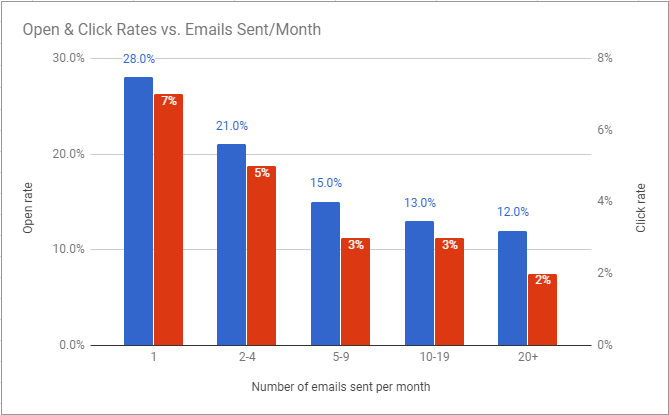
Here are some guidelines to help you establish an effective schedule for your event email campaign:
Pre-Event Stage:
- Early Announcement: Send an initial email introducing your event, highlighting critical details, and creating anticipation.
- Save the Date: Send a reminder email as the event date approaches, providing a clear “save the date” message and encouraging subscribers to mark their calendars.
Registration Stage:
- Registration Opening: Announce the event registration opening, highlighting early-bird offers, limited spots, or exclusive benefits for early registrants.
- Early-Bird Reminder: Send reminders about the approaching deadline for early-bird registration, emphasizing the savings or bonuses participants will receive.
Mid-Event Stage:
- Speaker Highlights: Share emails featuring your event’s keynote speakers, panelists, or special guests, showcasing their expertise and the value they bring to the event.
- Program Sneak Peek: Send emails that glimpse the event program, highlighting sessions, workshops, or networking opportunities to generate excitement.
Pre-Event Preparation:
- Logistics and FAQs: Send emails that provide practical information about event logistics, such as venue details, parking options, or FAQs to help attendees prepare for the event.
- Reminders and Checklists: Send timely reminders about important deadlines, required materials, or any last-minute preparations attendees must make.
Post-Event Stage:
- Thank You and Feedback: Send a post-event email expressing gratitude to attendees, speakers, and sponsors. Encourage participants to provide feedback and testimonials or share their event experiences.
- Follow-Up Opportunities: After the event, send emails highlighting follow-up opportunities, such as access to presentation recordings, exclusive content, or special offers related to the event.
Case Studies: Successful Event Email Marketing Campaigns
Case Study 1: TEDxMidAtlantic
TEDxMidAtlantic, an independently organized TED event, implemented an effective email marketing campaign to promote their annual conference.

Their email marketing efforts resulted in a significant increase in event registrations and engagement. By effectively segmenting their email list, delivering personalized content, and using persuasive strategies, TEDxMidAtlantic achieved successful event promotion.
Case Study 2: Dreamforce by Salesforce
Dreamforce, the annual conference organized by Salesforce, is known for its impressive event email marketing campaigns.

Dreamforce’s email marketing campaigns significantly drove event attendance, engagement, and success. Their strategic use of personalized content, social proof, interactive elements, and post-event follow-up demonstrated the effectiveness of a comprehensive and well-executed email marketing strategy.
These case studies highlight the importance of personalization, segmentation, engaging content, clear CTAs, and strategic timing in event email marketing. By leveraging these strategies, organizations can achieve higher registration rates, attendee engagement, and, ultimately, the success of their events.
Conclusion
I hope you have a clear idea about the importance of email marketing for events and how to use it effectively. Whether promoting a single event or multiple offerings, these tips help create engaging emails that generate interest and increase attendance at your next event.
If you have any doubts about event email marketing, please contact us! We will be happy to help you out.
Thanks for reading!
Also read: A Guide To Email Marketing For Insurance Agencies, and
A Guide To Email Marketing For Financial Advisors


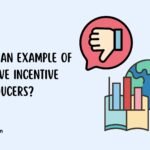

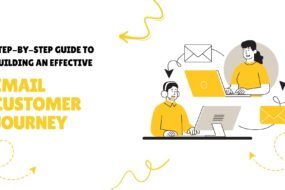
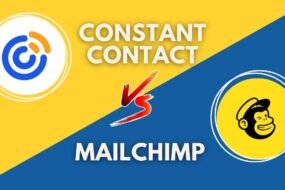

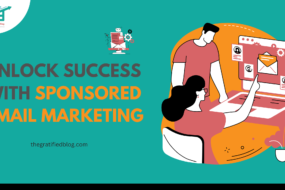
No Comments